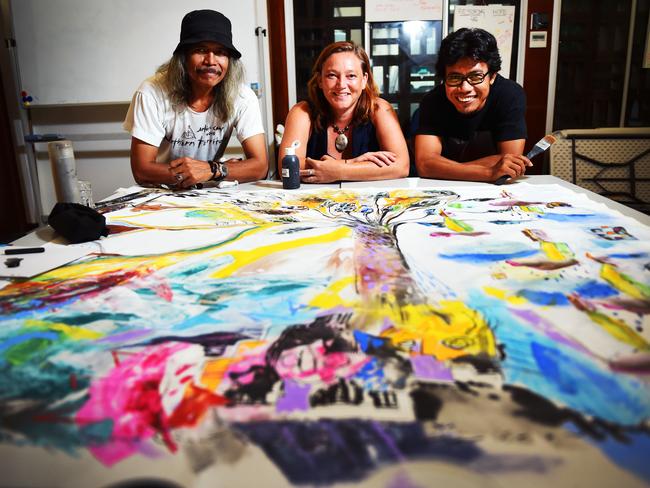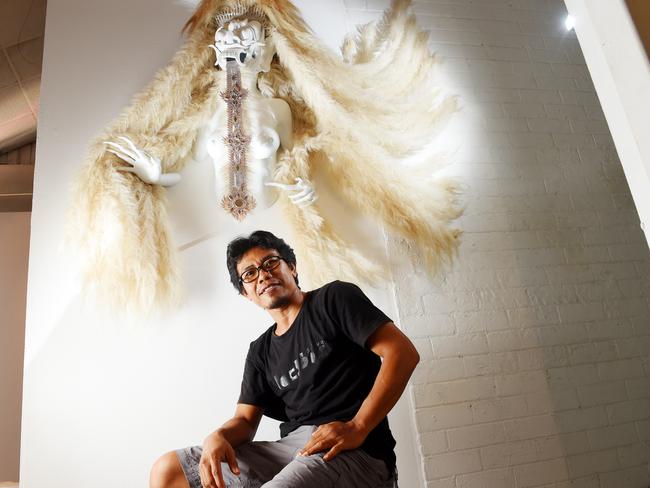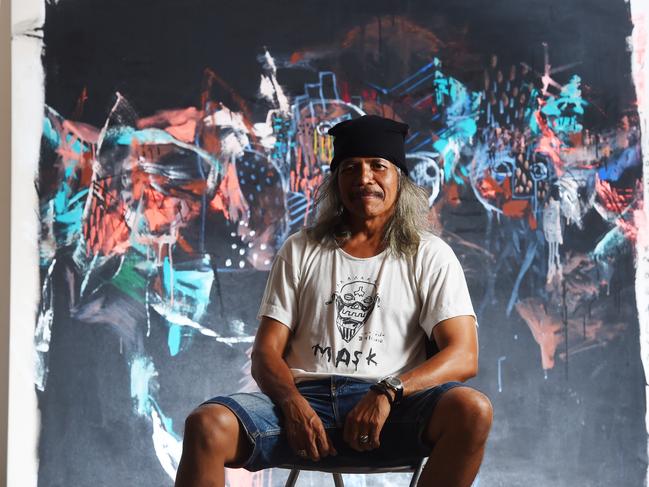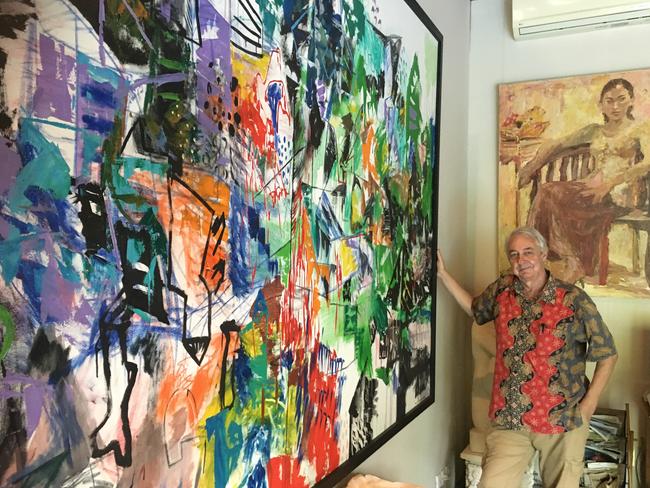DISTINGUISHED Darwin barrister Colin McDonald QC is one of Australia’s most experienced barristers in human rights issues and cross-cultural professional engagement.
He has a well-earned reputation as a tireless worker for Aboriginal people and refugees, particularly those from Cambodia, China and East Timor. He is a Law Council of Australia Presidents Medal recipient, the country’s highest accolade a legal practitioner can receive.
Since arriving in Darwin in 1981 he has acted as a defence lawyer in around 67 murder cases.
Most recently he is best known for his advocacy for Bali 9 members Scott Rush and Renae Lawrence. Rush was given a death sentence (later commuted to life) for attempting to smuggle 1.3kg of heroin into Indonesia.
Mr McDonald was on Rush’s legal team. He also represented other Bali 9 courier Renae Lawrence, who was released last November and returned to Australia.
McDonald is highly respected in the upper echelons of the Indonesian Government and few Territorians, if any, in Darwin are better connected than he. He spends much of his time commuting between Darwin and Bali where he has a villa sanctuary in Ubud.

It serves as a base for his legal work in Indonesia and a retreat to pursue his other passion of cross-cultural professional engagement.
The villa is awash with paintings by Indonesian artists. It has an artists’ retreat and gallery built on the secluded lush property.
It is a sanctuary surrounded by a cooling, beautiful tropical forest, with running stream, where artists from Indonesia and Australia can share their spirits and their culture.
As a founding board member of the Australia-Indonesia Institute, McDonald devotes himself to promoting Indonesian art and cultural exchanges.
He says the hand of friendship goes a long way when gaining trust between countries.
“Arts and culture are a means to grow trade and build the Territory’s international reputation,” McDonald says.
“It is one thing to want to make money out of country through trade deals, it is altogether another thing to prove your genuine friendship through country to country social interaction.
“Build relationships by building bonds of friendship and true trust.”
McDonald is the inspiration behind a series of Bali artist camps between the Territory and Indonesia which have been running since 2012.
The Northern Territory artists’ camp / Bali artists’ camp see Balinese artists exchange island life for the Top End bush and the dusty Outback and the Territory’s Aboriginal artists travel to Bali.
The engagement in Darwin has been through the Northern Centre for Contemporary Art at Parap.

The artists camps are a collaboration between Indonesia and Territory artists and were given financial support under former Labor chief minister Paul Henderson and then CLP chief ministers Terry Mills and Adam Giles.
Strangely the current Gunner Government has ceased that relationship with Indonesia.
It is a source of disappointment for McDonald.
He believes it reflects the inconsistent approach to Indonesia-NT relations.
“There are those within the bureaucracy who truly get it and then there are those higher up who just don’t care or understand how it works when growing an international relationship,” he said.
He takes greater comfort from the level of federal understanding, pointing to the high recognition both the federal Government and federal Opposition put on arts and culture while on the campaign trail in Darwin during the during the recent federal election
To that end the Bali artists camps have the ongoing support of the Indonesian Foreign Affairs Department, the Australia Indonesia Institute and the Australian Department of Foreign Affairs.
The history of artist exchanges between Indonesia and the NT actually dates back decades, with senior painter Made Budhiana first coming to Darwin in 1989, organised by the MAGNT of which Colin was once board chair.
Budhiana and other notable Indonesian artists Wayan Wirawan, Made Sudibia, Made Suarimbawa (Dalbo), Ni Nyoman Sani and (Nanik) Suryani have all spent lengthy time in the Top End, Central Australia and Melville Island capturing the Territory on canvas.

“Art and culture and sport are probably the most important means of engagement between countries,” McDonald says.
“I remember many years ago when I had the artists camp here in Bali that the vision was one of engagement at many levels. Art and culture are such powerful components of Indonesian society.
“It is an ongoing and enduring means of engagement.
“It is a rich and engaging way of imparting culture and respect between countries and their people. To share and embrace another country’s culture through art, dance or music, singing is important on so many levels.
“In essence it allows other potentially important conversations to take place in a politically neutral atmosphere.”
McDonald said it is disappointing that the Territory Government underestimates the importance that arts and culture plays in the relationship to Indonesia and Darwin.
“This is at a strategic level and a means for positive engagement,” he says. “The Bali Artist camp receives a lot of Indonesian media attention across mainstream Indonesian press and arts magazines.
The Indonesian artists engaged effortlessly with in Northern Territory aboriginal artists, which isn’t surprising because they all come from a world of spirits.
“There is a great interest in Indonesia in aboriginal culture and the way the Indonesian artists painted, projected and interpreted the Northern Territory landscape and aboriginal culture was an incredibly strong endorsement of the importance of nature and cultural sharing.”
Speaking during their time working with Territory indigenous artists, Budhiana, Wirawan and Sani said spending time in the vast expanses of the empty Territory allowed for reflection and contemplation.
This reflection was not just on the landscape of the NT, but also on their lives in Bali.
“Reflecting where you’re from when you’re far away from home, you can see another way of life,” Budhiana says.
In some of his works he aimed to capture the contrast between the two cultures — “the chaos of Bali and his perceived freedom in the Territory’s landscape”.
“It’s about how freedom and complications can become one in good ways,” he says.
Both Wirawan and Sani say they were drawn in by the spirituality and mysticism of Uluru.
“When I stare at the rock, I feel the rock staring at me like a mother looking over her child,” Sani said.
“I could feel a lot of eyes staring at me and the energy is so strong with the rock.
“I’ve never had that kind of feeling before and that was my first experience in the Northern Territory and Darwin.”
“I feel the colour and the aura and different soil from the land. There’s a very strong energy I tried to describe in my work.”
McDonald says it costs about $180,000 to run the Bali artists camps, but the engagement and goodwill that flows from it is a small price to pay.
“In terms of strategic direction this is a tiny amount of money, well spent for potentially big rewards in tourism and other forms of economic engagement … not just with Indonesia, but Timor Leste and elsewhere,” he says.


Add your comment to this story
To join the conversation, please log in. Don't have an account? Register
Join the conversation, you are commenting as Logout
From the Top End to SA: Untold stories shared in new book on railway history
Russians, railways, bridge thefts, and more – one author’s 20-year project on the untold history of the railways between Darwin and Adelaide has hit the shelves of Territory book stores.
Heart of gold: Life on site at Australia’s most remote mine
With the NT News being given unprecedented access to the Territory’s largest gold mine, take a peek behind the scenes – and meet some of the characters who make the mine tick.